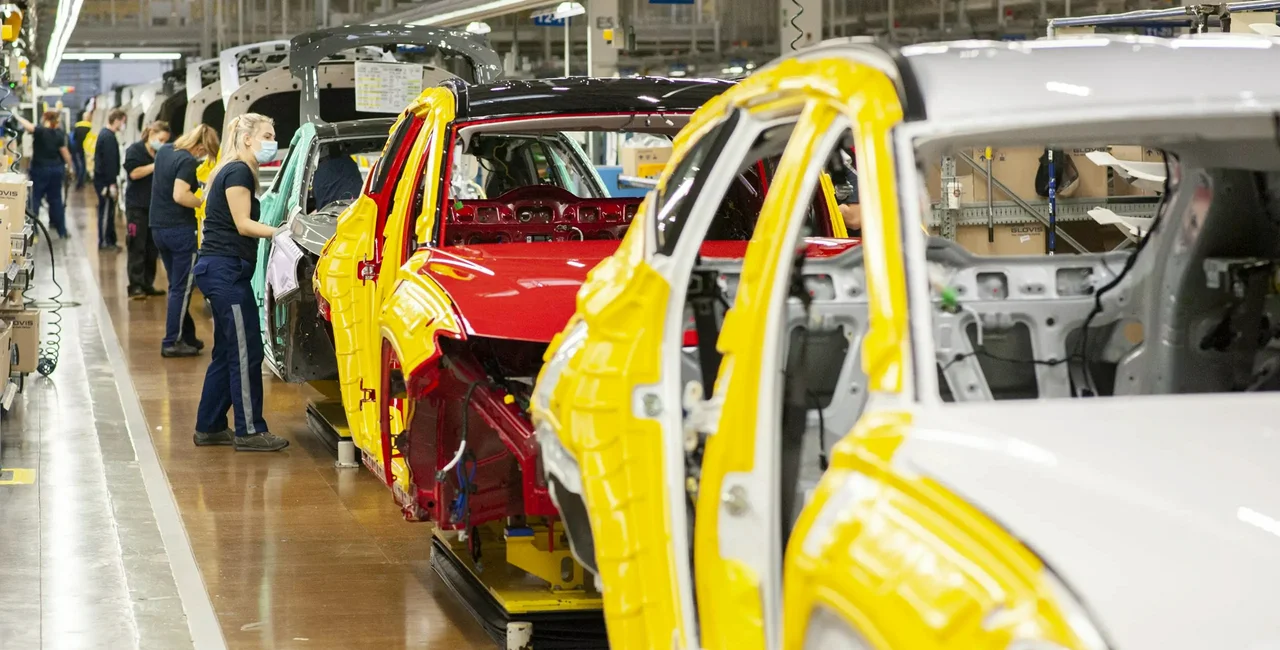The Hyundai automotive plant in the Czech Republic increased its output in 2022, despite supply chain issues and other obstacles. Hyundai Motor Manufacturing Czech (HMMC) is the South Korean carmaker’s only factory in the European Union, though there is a research and development plant in Germany.
Two other main automakers with Czech factories, Škoda and Toyota Motor Manufacturing Czech Republic (TMMCZ), have not yet announced figures for last year. Škoda, based in Mladá Boleslav, is not only Czechia’s largest carmaker but also the country’s largest single industrial firm. Kolín-based TMMCZ is the smallest of the three in terms of output.
Hyundai last year produced 322,500 cars in its Nošovice factory in the Moravia-Silesia region. This was was an increase of 47,500 cars over 2021, or some 17.3 percent. The goal for this year's production is 328,500 cars, according to Petr Michník, head of HMMC’s production subdivision. The Czech plant accounts for about 6 percent of Hyundai’s global output.
The number of cars made last year in Nošovice was the highest since 2018. “Despite persistent difficulties in the supply chains and other negative external influences, the automaker exceeded the set production plan by 1,000 cars," Michník told ČTK. The firm’s highest output was in 2016, with 358,400 cars.
The factory opened in September 2009. It made its 4 millionth car, a Tuscon N model, on Nov. 14, 2022.

Electrified cars now make two-fifths of production
In 2022, the Tucson model, a compact crossover SUV, accounted for about 72 percent of the total production in Nošovice, with two-fifths of them either hybrid (HEV) or plug-in hybrids (PHEV). The PHEV version can run longer on battery power than the HEV one.
The i30 model line of small family cars accounted for 17 percent of last year’s production last year, and the sporty Hyundai i30 N accounted for another 2 percent of production. The Kona Electric car accounted for over 9 percent of production.
In total, almost 40 percent of the cars produced last year were electric cars, hybrids, or plug-in hybrids. On the other hand, diesel cars now account for only 9 percent of production. The factory started making electrified cars in 2020, and previously made only gasoline or diesel-powered cars.

Germany is the largest market
The overwhelming majority of cars made in Nošovice in 2022 were for export, with less than 5 percent intended for the Czech market. The rest of the cars were sent to 66 countries or territories last year. Germany is the largest single market, receiving about 14 percent of the output. It is followed by Britain, Spain, and France.
Other markets included Hong Kong, New Caledonia, and the islands of Mauritius and Madagascar, according to Michník. The Tucson model is also largely aimed at countries in the Near and Middle East.
While Germany dominated the overall ranking of the biggest Hyundai buyers, sales of the i30 were more evenly balanced. Germany and Poland share the top spot with virtually the same number of cars, while the Czech Republic is the third-largest buyer of the i30 range. Slovakia, Austria and Romania are next.
The Kona Electric car from Nošovice was the most sought-after car in Germany, France, Norway, and Italy, while Australia is the second-largest market after Germany for the sharp i30 N.

Good results despite supply issues
Last year, the company's performance was affected by uncertainty in the supply of parts. It was also impacted by high energy and material prices and increased logistics costs. The factory was able to adjust its production to match the components that were available, so there was no need to stop the production, Michník added.
The company plans to install new technologies and increase automation, which should increase output from the current 65 to 66 cars per hour. “We increased the production line speed from 57 to 65 cars per hour in April [2022], and we have been able to maintain this even though we have to deal with a difficult global parts supply situation,” Michník said in a press release.
New president and new generation of Kona
Changki Lee, who became HMMC's new president on Jan. 1, said he was pleased with the strong customer interest in electrified models. “In the course of this year, we will also launch the production of the new generation of the Kona Electric model and expect to double the number of purely electric cars,” he said.
Batteries for electrified cars have been assembled in an assembly hall in Nošovice since November by subcontractor Mobis Automotive Czech.
The number of employees in 2022 increased compared to the previous year due to the increase in production. HMMC now employs almost 3,300 people, 92 percent of whom are Czech citizens. The average employee is over 38 years old and has been with HMMC for over eight years. Another 8,700 employees work at HMMC’s subcontractors.
Financial figures for 2022 are not year available. In 2021, HMMC's profit increased by CZK 5.55 billion to CZK 8.91 billion, and its sales increased by CZK 26.5 billion to CZK 140.42 billion.












 Reading time: 4 minutes
Reading time: 4 minutes 























